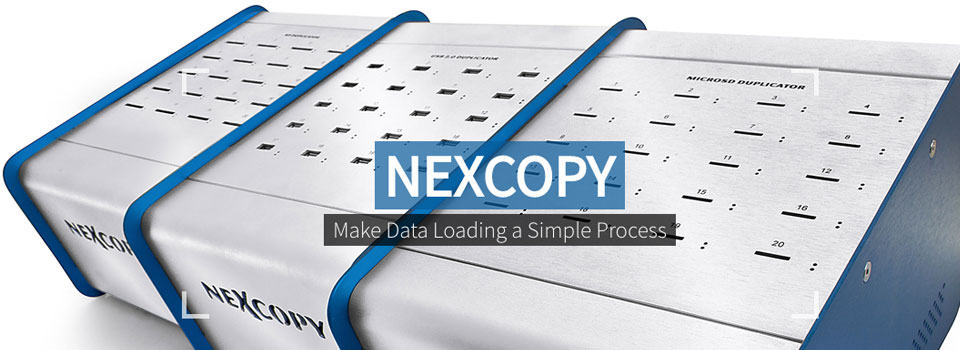Latest Portable USB-C Monitors to Boost Productivity On the Go
- You are here:
- Home
- Monitors & Display Adapters
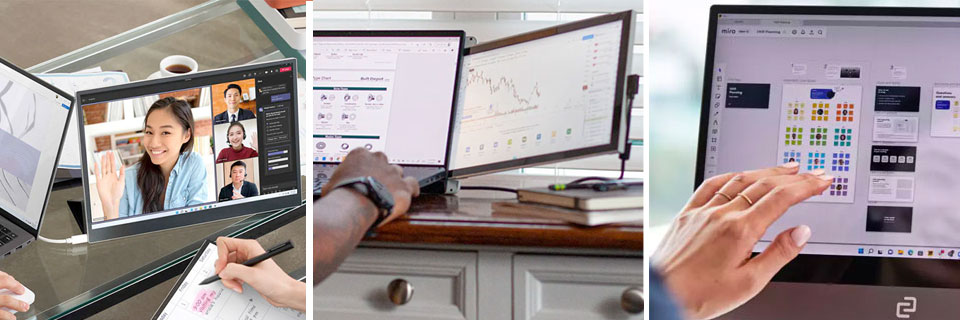
November 2023 Ian Chiu
Portable monitors have popped up left and right in recent years. They can easily double your Windows desktop area without cluttering up your “real” desktop. The upgrade process is also as easy as plugging in a USB-C cable, which conveniently carries both video and power.
In general, their screen sizes range from 12 to 16 inches diagonally. Anything smaller will tax your eyes and anything larger than a 16-inch would make the monitor heavy and bulky. Another advantage of mobile monitors is their relatively small size as well as lower weight compared to their desktop counterparts. This makes them ideal companions for anyone who needs the portability and productivity value of a second monitor around a cramped workspace.
Without further ado, here are five portable USB-C monitors that should meet the requirements of those who are working either from home, on the frontline in the office, or both.
Contents
Feature Comparisons
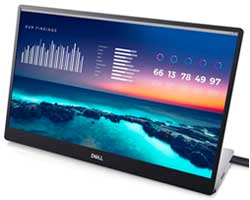 Dell P1424H $187.13 | 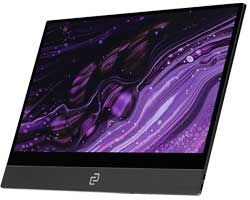 Espresso Display 13 Touch Price not available | 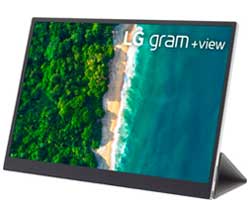 LG gram +view 16MR70 $296.98 | 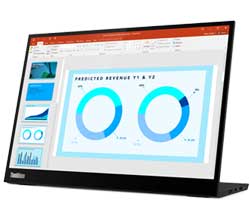 Lenovo ThinkVision M14d $199.00 | 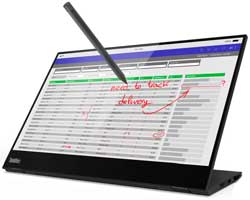 Lenovo ThinkVision M14t $340.24 | Mobile Pixels Duex Max Price not available |
|
|---|---|---|---|---|---|---|
| Interface: | USB-C (DisplayPort Alt) | USB-C (DisplayPort Alt) | USB-C (DisplayPort Alt) | USB-C (DisplayPort Alt) | USB-C (DisplayPort Alt) | USB-C (DisplayPort Alt) |
| Panel: | 14" IPS | 13" IPS | 16" IPS | 14" IPS | 14" IPS | 14" IPS |
| Screen Surface: | Matte | Glossy | Glossy | Matte | Glossy | Matte |
| Max Resolutions: | 1920 x 1080 | 1920 x 1080 | 2560 x 1600 | 2240 x 1400 | 1920 x 1080 | 1920 x 1080 |
| Aspect Ratio: | 16:9 | 16:9 | 16:10 | 16:10 | 16:9 | 16:9 |
| Pixel Density | 157 PPI | 169 PPI | 189 PPI | 188 PPI | 157 PPI | 156 PPI |
| Color Depth: | 8-bit | 8-bit | 8-bit | 8-bit | 8-bit (6-bit + FRC) | Unspecified |
| Brightness: | 300 nit | 300 nit | 350 nit | 375 nit | 300 nit | 300 nit |
| Contrast Ratio: | 700:1 | Not specified | 1200:1 | 1500:1 | 700:1 | Unspecified |
| Refresh Rate: | 60Hz | 60Hz | 60Hz | 60Hz | 60Hz | 60Hz |
| Response Time: | 6ms | Not specified | 30ms | 6 to 8 ms | 6 to 8 ms | 5ms |
| Adaptive Sync? | No | No | No | No | No | No |
| Max. Power Consumption: | 7.5W | Not specified | 8W | 7.5W | 9.5W | 4.5W |
| Max. USB-C Power Passthrough: | 65W | Not specified | 45W | 65W | 65W | Unspecified |
| Tilting Stand: | Yes (-10° ~ 90°) | Yes | Yes (105° or 120°) | Yes (0° ~ +90°) | Yes (-5° ~ 90°) | Yes (portrait mode) |
| Built-in Speakers? | No | Yes | No | No | No | No |
| Mountable? | No | Yes | No | Yes (Two 100mm screw holes) | No | Yes (on laptop screen) |
| Dimensions: (W x H x D) | 32.24 x 20.27 x 1.43cm | TBC | 36 x 24.6 x 0.83cm | 31.4 x 22.8 x 1.1cm | 32.3 x 22.7 x 1.4cm | 32 x 22.6 x 0.76cm |
| Weight: | 590g | 680g | 660g 950g with folio | 690g | 698g | 817g |
| Release Date: | June 2023 | July 2022 | March 2023 | Nov 2022 | Sept 2020 | May 2022 |
| Warranty: | Three years | One year | One year | One year | One year | One year |
Pricing is last updated by Amazon on 2025-04-18 at 21:00. When you buy through Amazon affiliate links on our site, we may earn an affiliate commission.
Dell P1424H
Dell’s portable USB-C monitor delivers a clean setup
Dell extends its long history of creative, gaming and business monitors with P1424H. The USB-C powered display is a follow-up to C1422H from 2021. Comparatively, the technical aspects between two models are very similar and they are also pretty much what you would expect from a mobile monitor at this price range.
P1424H boasts a 14-inch IPS 8-bit full HD panel with a refresh rate of 60Hz and a viewing angle of 178 degrees. It covers almost full sRGB color space, which is approximately 70% of Adobe RGB. The display opts for a matte surface to reduce screen glare. Max brightness is rated at 300 nits but realistically, it falls into a range of 250 nits.
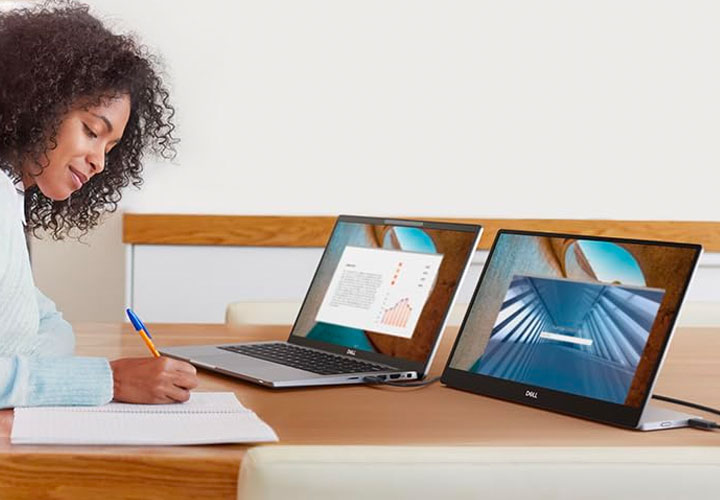
While Dell P1424H isn’t purpose-built for any particular market, it’s mostly aimed at business travelers and those who add another screen without sacrificing too much valuable desktop real estate. Its hinged stand – fully adjustable between 10 and 90 degrees – is always preferred to a folio cover that pulls double-duty as a stand.
Like other monitors of this category, P1424H has two USB-C ports – one on each side for video (i.e. DisplayPort Alt) input and power passthrough (up to 65W to a laptop) respectively. However, for the price, most would have expected the monitor to come with built-in speakers.
- 14" IPS Panel
- USB-C Connection
- 1920 x 1080 resolution
Espresso Display V2
Minimalist designer USB-C monitor has a price to match
Espresso has made a name for itself with its line of sleek and slim portable USB-C monitors. Measuring a mere 5.6mm in thickness, the display’s streamlined anodized aluminum body is paired with a full HD screen rated at 178 viewing degrees. The 8-bit IPS panel sports a glossy finish which is great for showcasing richer colors. However, the 300-nit screen may be difficult to read in direct sunlight.
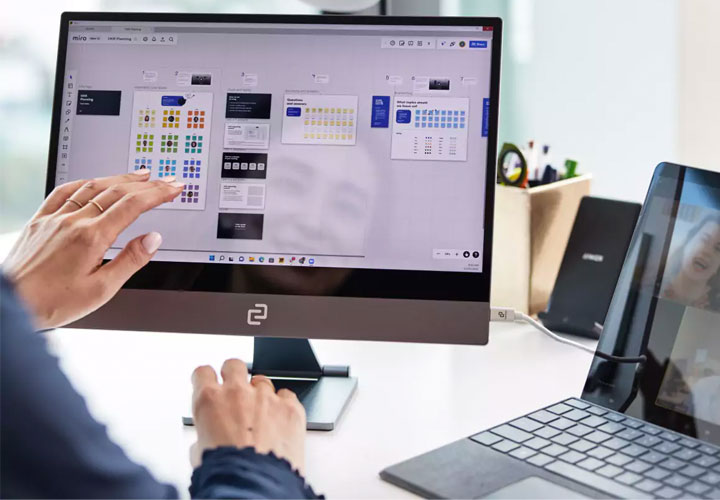
Both the 15- and 13-inch models offer touch capability, but you can also opt for the non-touch version on the smaller screen version. As expected, the 13-inch Espresso offers a higher pixel density than its larger counterpart. Auto-rotate comes standard so you wouldn’t need to adjust screen orientation manually every time you rotate the screen. The only input on the Espresso regardless of the model is USB-C – one port for video input and the other for power pass-through.
Whereas most portable monitors don’t come with software, the Espresso ships with a utility that helps you to manage apps in different workspaces. It allows you to effortlessly switch between workspaces, rearrange application windows, and customize layouts to suit your preferences. The same software also enables touch for Mac if your Espresso comes with a touchscreen.
In the accessory department, the company has a few options to enhance touch functionality, protection, ergonomic positioning, device connectivity, etc for Espresso. The stand is particularly handy as it magnetically attaches to the monitor while the mount is universally compatible with industry-standard VESA plates. Pricing of Espresso-line, however, puts them in the high end mobile USB-C monitor segment.
- Ultimate Laptop Companion: Enjoy dual-screen productivity anywhere you take your laptop and...
- Performance Meets Design. This is the premium, fully-featured device designed to help you work...
- Touchscreen for Mac & Windows: As more than a portable monitor, the espresso Display offers a...
LG gram +view 16MR70
First USB-powered 16-inch monitor with 16:10 2560 x 1600 screen
In a sea of portable USB-C monitors that commonly offer only full HD resolution, LG Gram +view 16MR70 with a 16-inch WQXGA IPS panel deserves a good look. As LG’s productivity-centric mobile display, the 16MR70 matches the screen size and 16:10 aspect ratio of a growing number of 16-inch laptops.
These desktop-replacement notebooks boast 2560 x 1600 screen resolution with extra vertical space for documents and spreadsheets. Hence, having a secondary screen like the 16MR70 further complements the heavy lifting most power users do on daily basis.
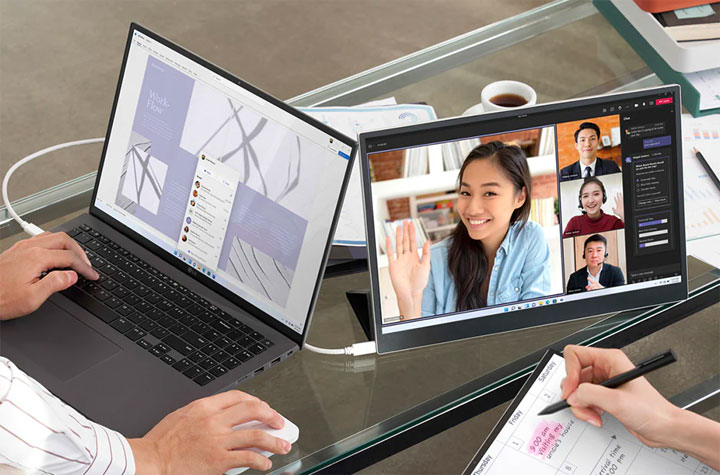
With a total weight of 2.18 lbs, the LG Gram +view 16MR70 comes with a folio cover that doubles as a stand. You will also find a pair of USB-C ports, presumably one of which is designed for USB Power Delivery passthrough. There’s no built-in battery but we are only looking at an 8W power draw. Its anti-glare screen with a 170-degree viewing angle and 60Hz refresh rate is rated for 350 cdm/2 rather than the more typical 250 cd/m2. The brightness falls short of most LCDs in order to save a laptop’s battery life.
- With the new LG gram +view,1 portable monitor, you add the extra versatility of a second screen...
- Use our expansive 16" portable monitor alongside your laptop as an extension of your screen...
- No matter the lighting, work without disruption with a 16” non-reflective IPS display and a...
Lenovo ThinkVision M14d
USB-C Monitor with 16:10 aspect ratio and 2240 by 1400 resolution
Seeing the latest laptops are predominantly 16:10, a mobile monitor like the Lenovo ThinkVision M14d would be perfect for doubling the desktop real estate while maintaining the same aspect ratio as the primary screen. ThinkVision M14d is also unique on its own in that it boasts a resolution of 2240 by 1400 pixels on the 14-inch IPS panel. This translates to 189 ppi, which is fairly high as far as pixel density goes on a sub-4k screen.
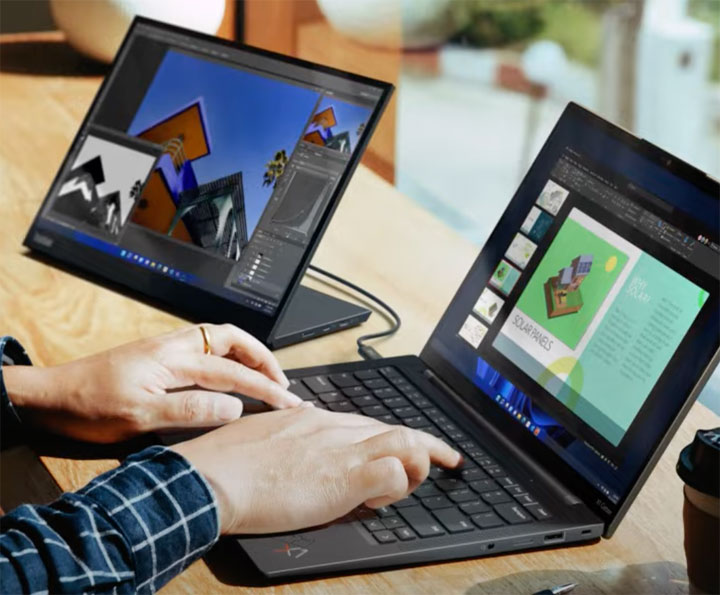
Thanks to its matte screen surface, Lenovo M14d can handle glare far better than its sibling with a glossy touchscreen. Combine that with a peak brightness of 375 nits and you have a bright display good for almost anywhere except under direct sunlight.
As a USB-C only monitor, the monitor draws power and receives video (via DisplayPort Alt mode) from PCs, Macs, or iPad Pros. The USB-C port on the opposite side is used to plug in a Power Delivery adapter in case the host (e.g. Samsung DeX-compatible smartphone) doesn’t deliver enough power to the monitor. The power passthrough supplies up to 65W which is enough for everything up to 14-inch laptops to stay charged during max workload.
Lastly, Lenovo ThinkVision M14d is integrated with a durable hinged stand that has a tilt range of 5 degrees in the forward direction and 95 degrees backward. The stand appears to be built with longevity in mind compared to an origami-style fold-up stand bundled with most other portable monitors.
- Is power-efficient with minimal heat production to ensure a prolonged, convenient usage
- USB Type-C allows powerful and efficient transfer of data with maximum productivity
- 14" viewable screen size provides a lively viewing experience
Lenovo ThinkVision M14t
USB-C Monitor with touch-screen and USB PD pass-through
Secondary mobile monitors have become an indispensable tool for business travelers to maximize their productivity on the go. It wouldn’t be a surprise that these portable displays are also getting a touchscreen as it represents the next logical evolution. Lenovo’s ThinkVision M14t is among the first to jump onto the bandwagon.
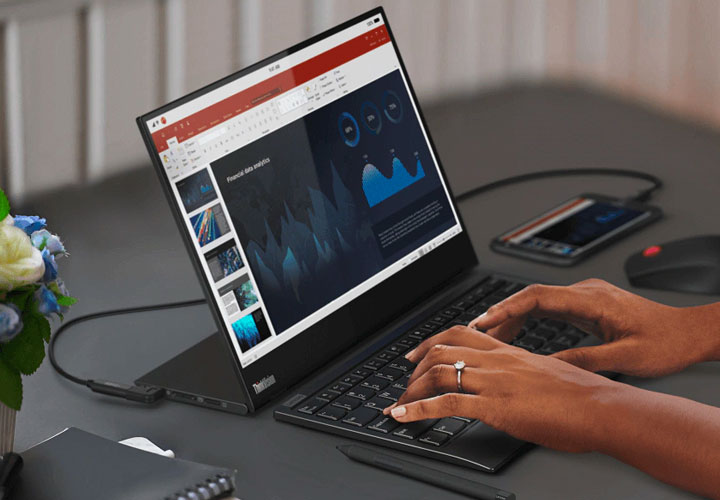
The 1.5 lbs. matte black ThinkVision M14t sports a 14-inch IPS capacitive touch panel with a top glass layer. Together with 10-point touch capability, the M14t transforms into an oversized tablet when paired with a touch-friendly OS such as Windows 10 and Android. For the latter mobile platform, having touch interactions makes a world of difference. On top of that, a 4096-level pressure-sensitive stylus that comes with the package is handy for signing documents and taking notes. Though, the monitor might struggle to keep up with the screen responsiveness required for precision drawing.
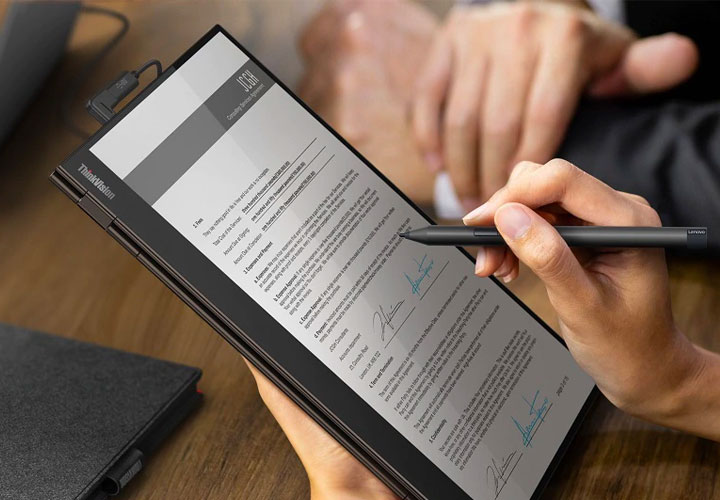
Lenovo has also thoughtfully included a flip base, which supports the screen to stand upright in portrait mode. Additionally, there’s a USB-C power pass-through port so one can use a USB Power Delivery-compliant power brick to provide power to the monitor as well as to charge the laptop (up to 65W) or Android smartphone simultaneously.
- Display: 14-inch FHD IPS (1920x1080) 300 nits Touchscreen, Viewing Angle: 178°/178°
- Ports : 2 x USB 3.2 Type-C | Pen: Active Pen with battery
- Design: Side Bezel width 5.43 mm |Tilt: -5°/90°, Lift (maxrange): 150mm
Mobile Pixels Duex Max
Portable monitor that piggybacks on your laptop’s display
Mobile monitors in general aren’t exactly built with ergonomics and quick deployment in mind. Mobile Pixels tries to change that with Duex Max. What makes Duex Max stands out from the pack is its integration with a laptop. It comes with a mount that sticks to the back of a laptop display with oval-shaped adhesive magnets. From there, you can slide out the 14-inch 1080p matte panel to either side of a laptop although you need to reposition the mount.
![]()
Additionally, you can even rotate the display by 270 degrees to the back of a laptop. This mode will come in handy when you want to make a presentation to a person sitting on the other side of the table. Keep in mind there’s the stress Duex Max puts on the laptop display’s hinge when it is fully extended. For a conventional monitor setup, there’s also a kickstand at your disposal.
In addition to the 14.1-inch (Max) Mobile Pixels also carries 12.5- (Lite) and 13.3-inch (Plus) models. This line-up makes quick deployment of a secondary display less of a hassle especially when you are limited by the desktop space available or when you simply want to work on a lap. Last but not least, the monitor does work over either USB-C (via DisplayPort Alt mode) or USB-A. The latter connection will need driver installations.
- Duex Plus DS Laptop Monitor: Weighing just 1.3 lbs and super slim, the Duex Plus DS laptop dual...
- Easy Setup, No Hassle: Just plug in the USB-C or Mini HDMI cable, stick on the magnets, and...
- Multiple Ways to View: Need different angles? No problem! You can use the screen in landscape...
We will be adding more USB mobile monitors as soon as they become available. Meanwhile, if you stumble upon anything cool you like us to put on this list, let us know in the comment section below.
Nexcopy manufactures a variety of PC-based and standalone USB duplicator solutions.
PC based systems support advanced USB functions such as write protection, CD-ROM partition and multi-partition creation, while standalone systems are ultra-fast, high speed USB copiers duplicating gigabytes of data quickly and accurately.







